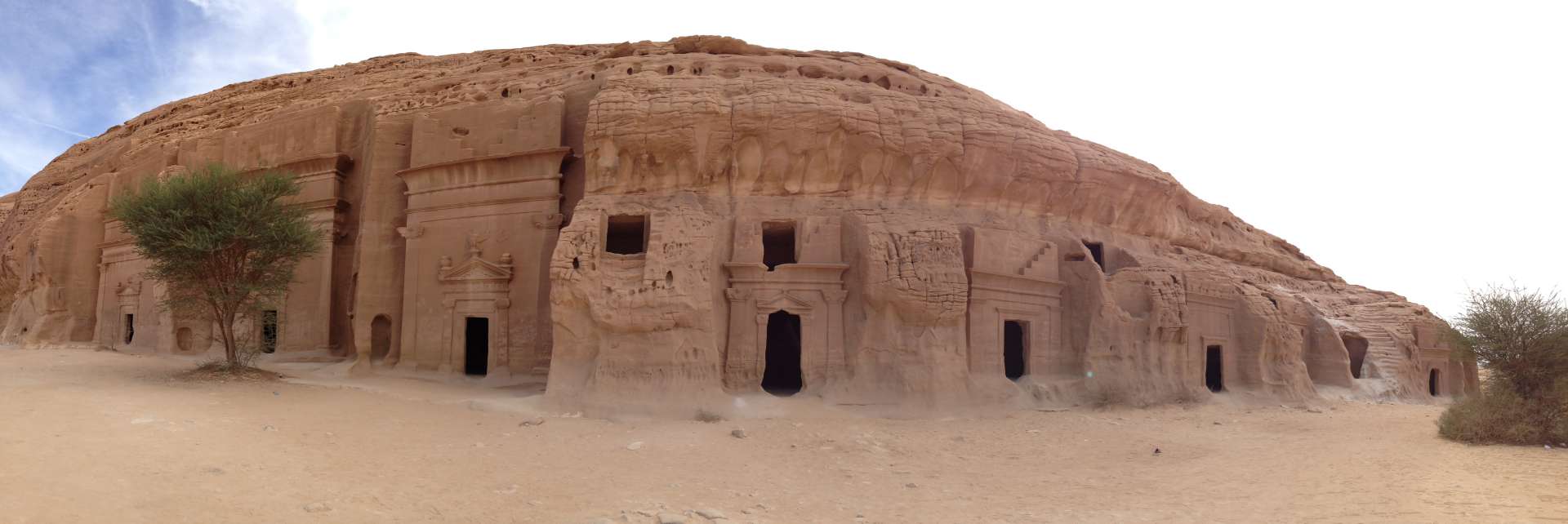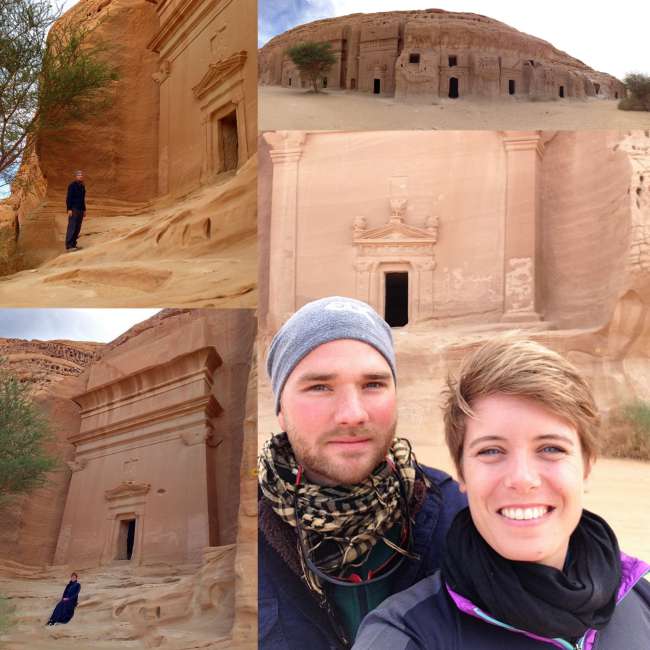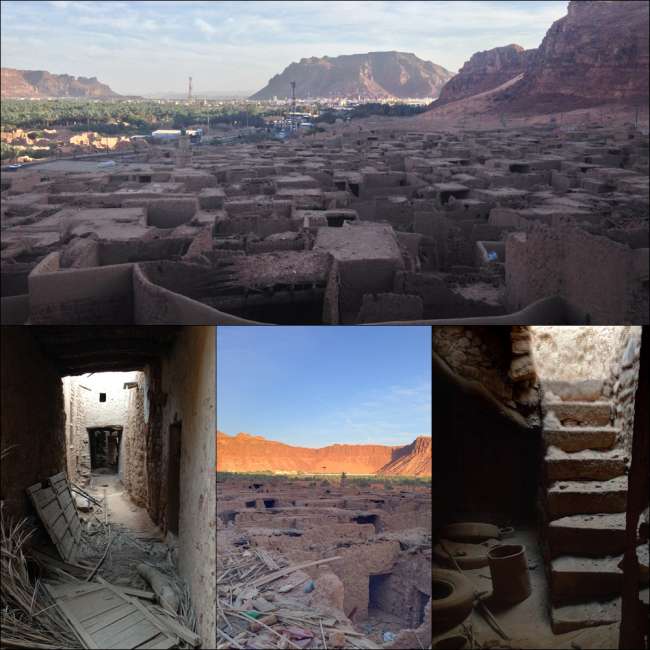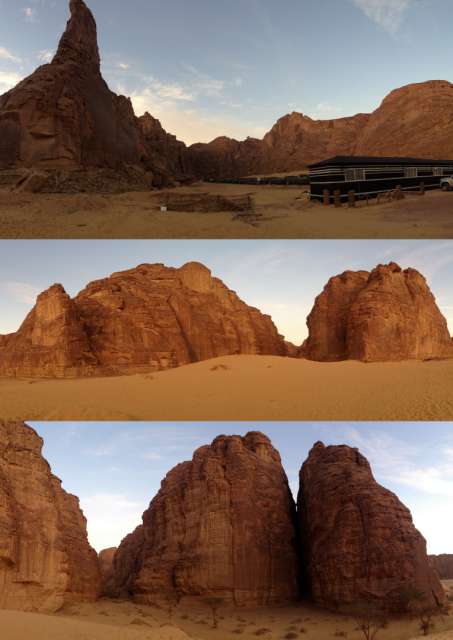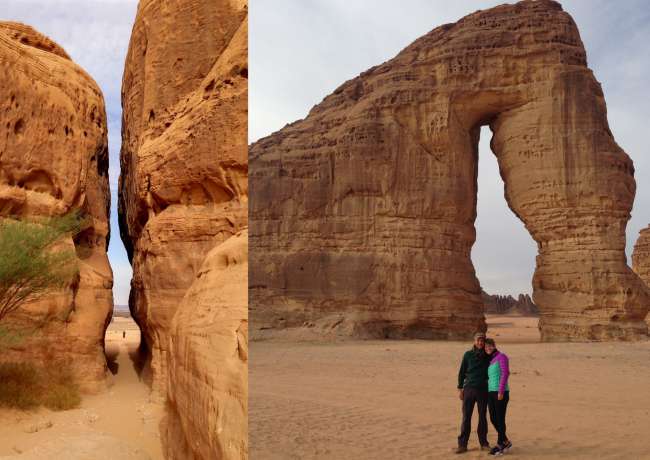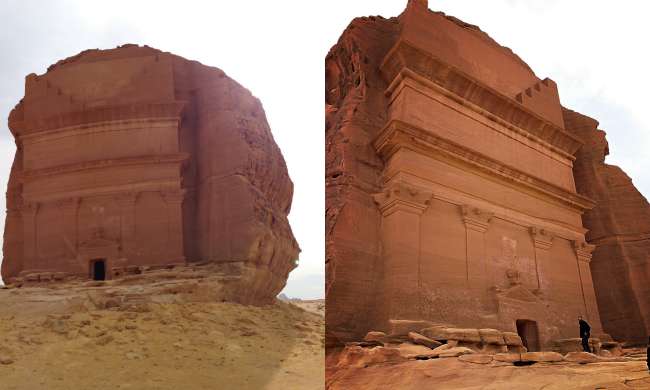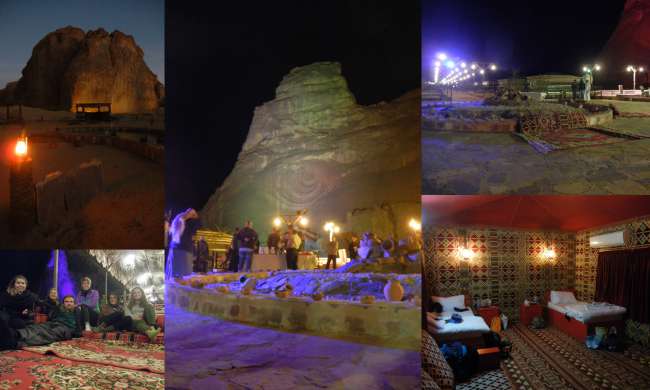Al-'Ula and Mada'in Saleh
Გამოქვეყნდა: 08.12.2016
Გამოიწერეთ Newsletter
How can we start this blog post better than with: “wow”!
Although last weekend was quite exhausting (many, many hours on the bus) - but we also saw breathtaking landscapes and visited several incredibly exciting places.
As part of a university trip, we set off for Al-'Ula on Friday morning - an oasis about 550km north of KAUST in northwestern Saudi Arabia.
Al-'Ula corresponds to the biblical Dadan and was the capital of the Lihyanite Kingdom (6th to 4th century BC).
The area is dominated by a beautiful sandstone mountain range - I have never been to Arizona, but that's how I imagine 'Monument Valley'.

Breathtaking landscapes
Among other things, we also visited the 'Elephant Stone' - you might need a bit of imagination for that, but in many of the other rock formations, you could occasionally recognize animals by squinting your eyes a bit.

On the first day, we visited the old town of Al-'Ula. Today abandoned and decayed, it is almost unimaginable that people still lived here until the 70s.
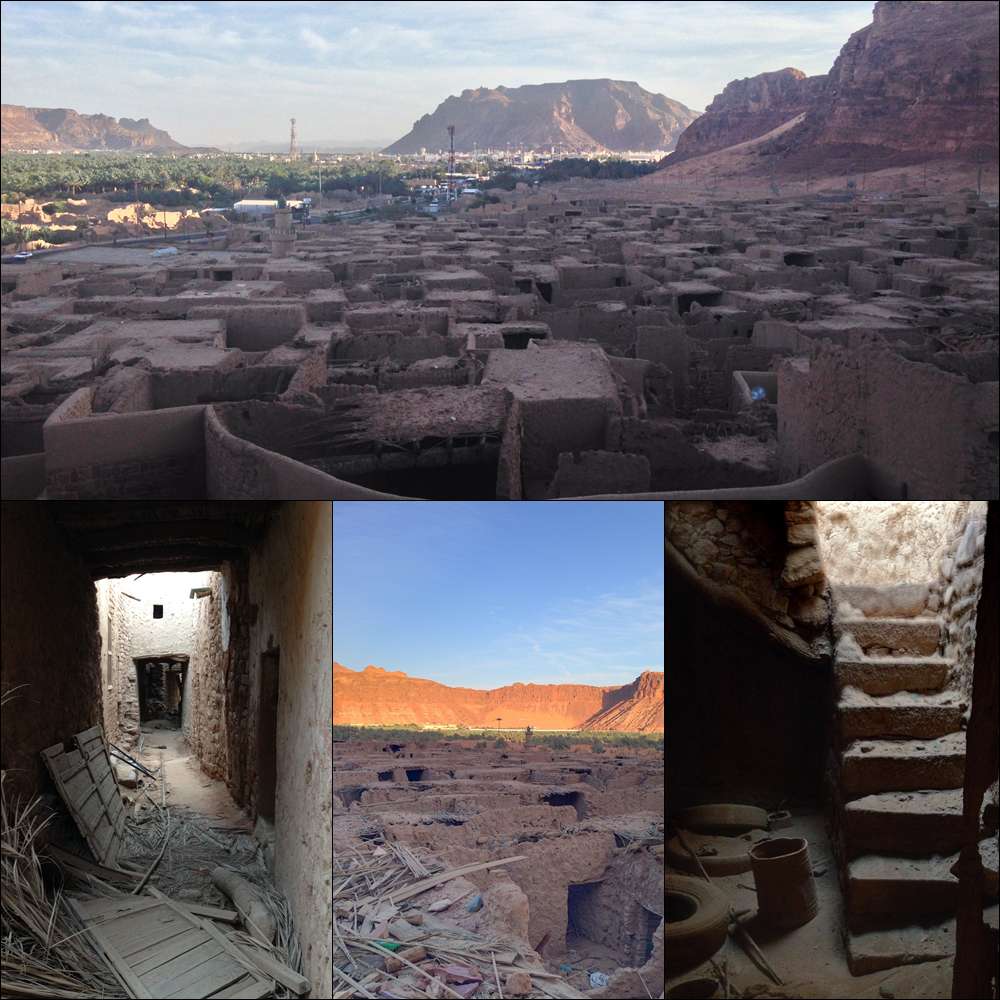
The 'Old Town' of Al-'Ula
Our 'resort' was also pretty cool - in the middle of the desert and in a basin between beautiful sandstone mountains. With small huts that looked like tents from the inside, delicious food and a really nice atmosphere. Apparently, a prince with his 'entourage' also stayed after us, so it seems to be a popular address

Our desert resort
In terms of temperature, it was finally a bit 'wintry', definitely in the single digits at night (desert, you know ;-)) and during the day? Well, it was still autumnal 22 degrees :) Luckily, we brought some warm clothes with us - without them, we would have been a bit lost. Especially when we went into the desert at night to stargaze :)
On Saturday morning, we headed to Mada'in Saleh, the ancient city of Hegra, a trading metropolis inhabited by the Nabateans and the Thamud. Since 2008, Mada'in Saleh has been a UNESCO World Heritage Site and is known for its over a hundred monumental tombs carved into the rocks from the 1st century BC to the 1st century AD.

In the next photo, you can see "Qasr al-Farid", the only rock tomb that stands far away from the others and stands alone - that's why it's called "the lonely castle".
Although the name sounds exciting - it's just a tomb, but - and this is the special thing - carved from a single rock, sometime in the 1st century AD. The facade was never finished - but at this tomb, you can study the different steps in stone carving.
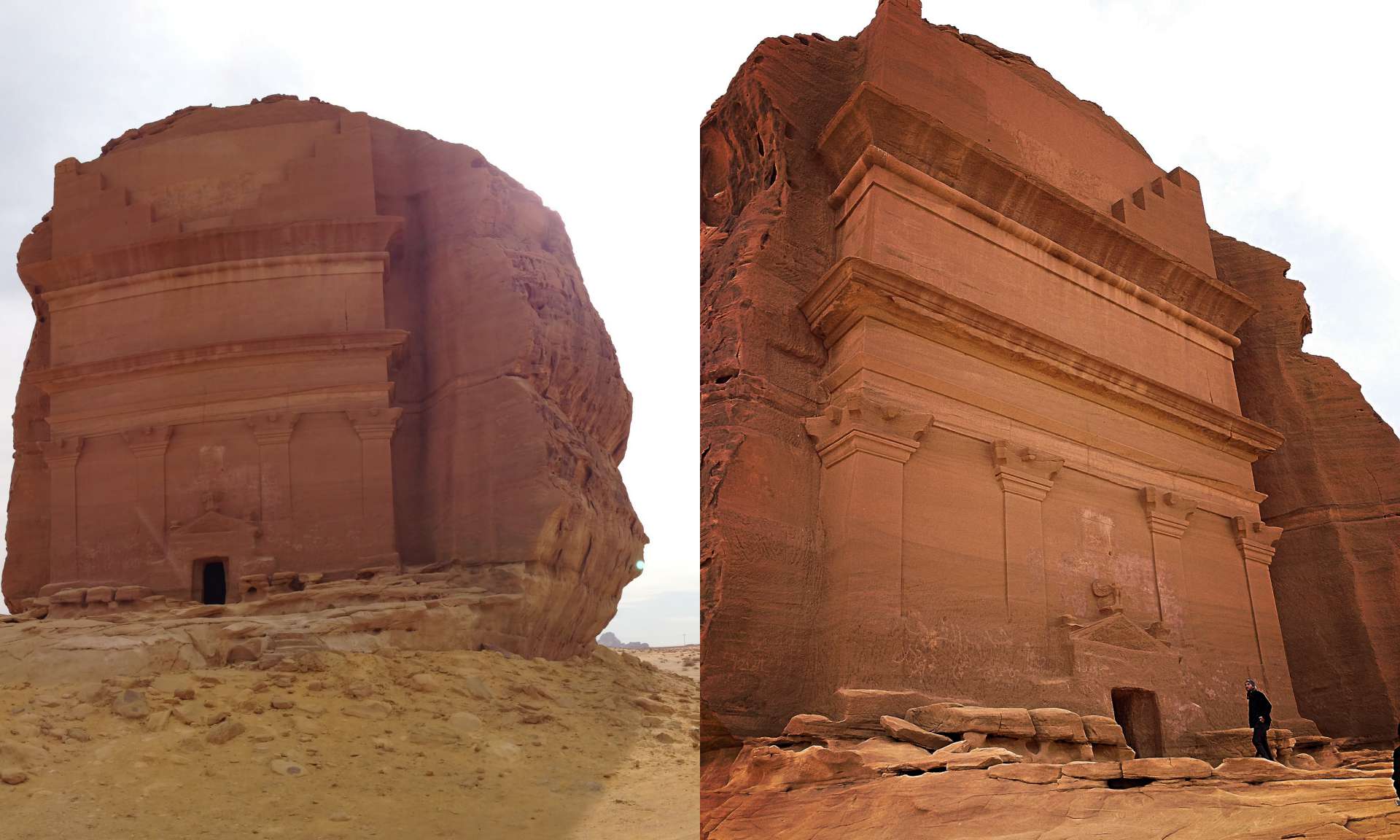
Qasr al-Farid - the lonely castle
The rest of the week was filled with long working days. I'm also writing this entry while I'm still in the lab - measuring my estimated 2000 alkalinity and DIC samples ;-) But experimentally, things are looking good - so the work seems to be worth it.
That's it for this week from Felix and me!
Greetings from home!
Გამოიწერეთ Newsletter
Უპასუხე
